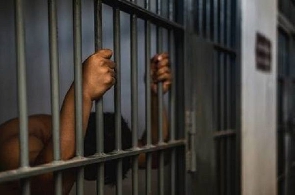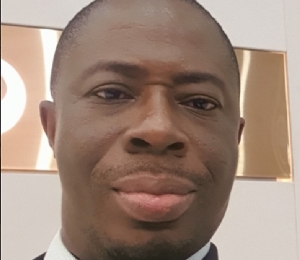.... OR IRRESPONSIBLE GOVERNMENT POLICY
If you live in Ghana or anywhere in Africa, the first comment you are likely to hear after the occurrence of a fatal road accident is “WITCHCRAFT” or “Satan”.Unfortunately our culture seems to show lack of a pragmatic approach to the problems that confront us daily as a continent; one of which is the carnage on our roads. Perhaps lack of action and pragmatic approach to solving problems would be a good definition for witchcraft and Satan.
According to Sarpong (2003), in 2001 Ghana was rated the second highest road traffic accident-prone among six West African countries with 73 deaths per 10,000 accidents. From January to March 2003, Accra alone recorded 1,417 motor accidents involving 2,125 vehicles. According to the Motor Traffic and Transport Unit (MTTU) of the police, during this period, there were 78 fatalities, 373 serious injury cases and 966 minor cases in which vehicles ran into other vehicles(As cited by Sarpong 2003).
Ghana reported 127,182 road accidents between 1991 and 2004 in which 17,126 deaths were recorded. According to Mr. Tandoh, the MTTU boss, from January 1992 to December 2002, Ghana officially reported 116,292 accident cases throughout the country. This resulted in 11,256 death and 87,650 injuries. Road safety experts have pegged the annual death toll through accident at about 2200 at an average of 6 persons per day. This number is 5 times the number of deaths through violent crimes such as murders, armed robbery, manslaughter etc. The sad news however is, the toll is likely to go up from the 6 daily as Christmas approaches and the law enforcement agencies become so preoccupied with collecting bribes and our policy makers get so preoccupied with end of year parties.
According to the Daily Guide, one of the cars in Vice President, Aliu Mahama’s convoy was involved in a fatal motor accident at Chira, near Sunyani in the Brong Ahafo Region, at about 2:30pm on Sunday November 26, 2006 where at least two people, believed to be the vice president’s security guards were pronounced dead on the spot, while a third died at the hospital. Five others including media personnel and the driver sustained various degrees of injury (Daily Guide, November 27, 2006).
The report indicates that the driver of the vehicle, which was directly behind that of the Vice President’s, on Sunday November 26, 2006 veered off the road in an attempt to prevent his car from hitting the Vice President’s and consequently somersaulted. The vehicle which had one of its front tires busted was damaged beyond repair. So the question is, was there a caution sign at this entrance and why had nothing been done to address the problem if the ministry of Transport and Highways was aware of this? Secondly why would the Vice President and his convoy not slow down when they got to this point? Did they obey the sign and the speed limit at all (if there was any)?
Many including our policy makers would rather attribute the many road accidents to witchcraft and other evil forces rather than identifying the root of the problem. This is very pathetic. This Christmas season, Ghanaians cannot but task our government to come out with a pragmatic government policy to curb this carnage on our roads.
According to the report, the site of the tragedy is said to be a flash point, known for such fatal accidents. It is a sharp curve on a slope and drivers who are not familiar with the road run into frequent accidents. According to the report, an eyewitness explained that about seven cars behind the accident vehicle, including that of the Vice President’s would have suffered the same fate, but for the skillfulness of the driver. In a related development one of the Vice President’s dispatch riders was also thrown off his motor-bike, while traveling to Techiman earlier in the morning on the same day. The front tyre of the bike is said to have busted around Yawhimah, 10 minutes drive from Sunyani and was apparently saved because of his helmet.
The question is: Will the police pursue an investigation to find out why the front tyre of the (police) bike busted or would this be considered as one of those let it be (That is give it to God or let’s pray to God)- Let providence take care of it until many more die? Is this the attitude of government?*
Perhaps this explains why there is constant mentioning of road accidents everyday yet not much has been done or being done to solve this from the root.
I would like to agree with one social commentator who have stated that, “only the stupid and unintelligent people will attribute these road accidents to witchcraft or juju, simply because we tend to play negligence most of the time. We cannot disregard the traffic laws and feel like we are immune to accidental death. We need to wake up to face the realities of life: You can’t eat your cake and have it back. We all need to assume responsibility and stop passing it to witchcraft. This superstitions or witch hunting will not solve our problems but only add to them.
For instance, it is very pathetic that our policy makers have not sat down to figure out why there are so many accidents during Christmas and Easter season in Africa. This is a busy commercial season in Africa and every driver as well as passenger is trying to make the most money. Hence the drivers over load their vehicles and ignore speed limits. This is the very time that all the condemned vehicles get on the road. The security or law enforcement officers also become so preoccupied with collecting bribes that they do not deter the law breakers. The chain of negligence goes on and on.
Is it not true that even when one sensible passenger complains about over speeding or overloading the other passengers (who own the loads or cargo) would hoot at him or her? As if they were right at hooting at the cautious citizen, the police and other law enforcement agencies would take bribes and watch the mayhem.
Most commercial drivers have no regard for road signs and traffic regulations. However, road accidents are not restricted to only the commercial and private vehicles but also presidential convoys. President Jerry Rawlings (of the 1990s) once had a scare during his tenure of office when a mini bus drove into his convoy from an unauthorized entry. Four of his bodyguards died on the spot. An innocent citizen in 2003 was crushed to death by a pick-up in Accra, while ahead of the presidential convoy. In April 2003, President Kufuor narrowly escaped death when a taxicab crossed his convoy. One person died on the spot, while three others later died at the hospital. In March 2003 a student was killed when he was knocked off his bicycle in an accident involving the Vice President’s convoy. In February 2003, the presidential convoy was involved in another accident in which two of the presidential security guards died. The accident occurred when the President’s convoy was on its way to Accra after an official assignment in the Volta Region. Prior to that, two security men attached to the president had been killed when they were thrown out of their vehicle after it hit a big pothole during another official engagement. In January 2003, a drunken driver was arrested when he drove and blocked the presidential convoy. The driver ignored the sound of the siren to stop and drove on instead. In the process, the driver nearly knocked down one of the presidential dispatch riders with his Mercedes Benz bus. Such reckless driving has led to the untimely death of some presidential dispatch outriders.
A careful study of the reports would suggest that even the government convoys are not obeying the traffic regulations. Our government must acknowledge its leadership role and stewardship responsibility and do something more meaningful to save precious lives this Christmas season
Where is the government this Yuletide? I s the government going to stay aloof and watch families mourn their loved ones this year from road accidental deaths? Or is he going to caution the law enforcement officers to do their work as a duty to the nation? Perhaps our policy makers also enjoy attending funerals as they get the opportunity to show off in their motorcade.
·
Recommendations to Government.
1. Provide or intensify training to seek new ways of Regional Traffic Safety Network (RetsNet), a pilot project in road safety technology transfer as employed in Southern Africa.
2. Target driver and vehicle safety through improved testing capabilities. (A system used by the Southern African Transport and Communications Commission (SATTC).
3. Target hazardous locations for pedestrians and erect the appropriate warning sign to raise the level of awareness of driver and pedestrian safety.
3. Introduce or improve the monitoring of trauma casualties in hospitals to complement police crash databases which are vulnerable to under-reporting.
4. NRSC must put more time energy and premium on delivering more successful education and publicity campaigns not national plans or propagandas but, remedial measures and targeted law enforcement programmes. NRSCs, should and must take responsibility of maintaining sanity on our roads instead of dilute accountability and finger pointing. NRSC must be innovative in its approach.
5. Ghana government must encourage partnerships between government, private sector and the community to actively get involved in road safety.
6. The African road safety literature review (chapter 7) indicates that while many African countries have computerised crash data systems, only a few make maximum use of the data. The government of Ghana and the authorities concerned must utilize the nations’ computerised crash data systems to the maximum output. Ability to accurately record crash locations will help the government and road engineers to identify where crashes are clustering and employ the appropriate solutions rather than a guess work. Traffic police can then target their resources at the most dangerous locations.
7. The government and the road safety authorities must employ pedestrian precincts and the use of speed breakers (or encourage local residents to even install them if the government cannot do this).
8. The government must initiate or enforce safety audits on rehabilitation projects especially ongoing large-scale donor financed rehabilitation projects. This must began with tendering road construction works to very qualified contractors and employ (geometric) design standards not appeasing political cronies.
9. Ghana should focus on replacing our pre-independence traffic regulations with a more up to date set of regulations and enforcement the new regulations vigorously.
10 Put up road signs and safety signals.
11. Mark the roads
12. Put up street lights and make use of reflectors
13. Police must investigate accident cases not leave it in the hands of Providence or chance.
14. State official convoys must pay heed to traffic laws as well.
15. Mark all sharp curves or turns















